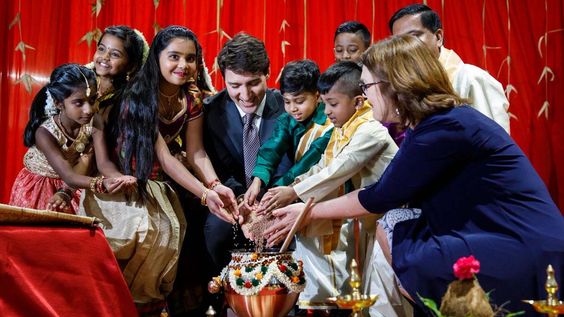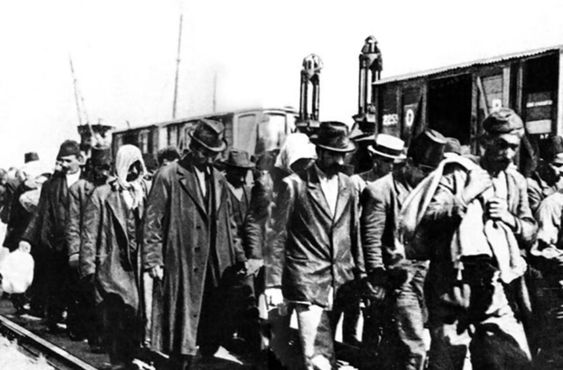What is Genocide Day
Genocide Day serves as a poignant reminder of humanity’s capacity for both profound darkness and remarkable resilience. In this article, we delve into the significance of Genocide Day, its historical context, and the imperative need to acknowledge and learn from past atrocities.
Genocide Day
Genocide Day, observed annually on [date], stands as a solemn tribute to the millions of lives lost to genocide throughout history. It serves as a call to action, urging individuals and nations alike to confront the horrors of genocide and strive for a future free from such atrocities.
History and Origin of Genocide Day
The inception of Genocide Day can be traced back to [year] when [organization/entity] formally recognized the need for a day dedicated to commemorating victims of genocide worldwide. Since then, it has evolved into a global observance, marked by ceremonies, educational initiatives, and advocacy campaigns. Also, read about What is Domestic Assault
Understanding Genocide: Definition and Examples
Defining Genocide
Genocide, as defined by the United Nations, refers to the deliberate and systematic destruction of a racial, ethnic, religious, or national group. It encompasses a range of acts including mass killings, forced displacement, and cultural eradication.
Notable Examples of Genocide
From the Holocaust to the Rwandan genocide, history is marred by instances of unspeakable brutality. Each genocide serves as a stark reminder of humanity’s capacity for cruelty and the dire consequences of prejudice and hatred.
Importance of Recognizing Genocide
Raising Awareness
By acknowledging past genocides, we shine a spotlight on the darkest chapters of human history, ensuring that the voices of victims are never forgotten.
Preventing Future Atrocities
Through education and advocacy, we can challenge the underlying factors that contribute to genocide, fostering a culture of tolerance and empathy. For more interesting information visit our website urbansoutfitter.com
Commemorating Genocide Day
On Genocide Day, communities around the world come together to honor the memory of those who perished and reaffirm their commitment to peace and justice.
Activities and Events
From memorial services to educational workshops, a myriad of events are organized to commemorate Genocide Day and promote dialogue and reflection.
Remembrance Ceremonies
Candlelight vigils, moments of silence, and artistic performances offer poignant tributes to the resilience of survivors and the enduring legacy of those lost to genocide.

Impact of Genocide on Societies and Individuals
Psychological Effects
The trauma of genocide reverberates across generations, leaving deep scars on survivors and their descendants.
Inter-generational Trauma
The transmission of trauma from one generation to the next underscores the importance of providing support and resources to affected communities.
Education and Advocacy Efforts
Importance of Teaching History
By integrating genocide education into school curricula, we empower future generations to confront prejudice and injustice.
Advocacy for Justice and Reconciliation
Through grassroots activism and international cooperation, we can hold perpetrators of genocide accountable and promote healing and reconciliation.
Challenges in Addressing and Preventing Genocide
Political Obstacles
Political interests and power dynamics often hinder efforts to address genocide and secure justice for victims.
International Response
Inadequate international response and intervention continue to pose significant challenges in preventing and mitigating genocidal atrocities.
Ways to Support Survivors and Affected Communities
Providing Aid and Assistance
Humanitarian organizations play a crucial role in providing aid and support to survivors of genocide and rebuilding communities devastated by violence.
Promoting Healing and Reconciliation
Efforts to promote healing and reconciliation are essential for fostering healing and rebuilding trust within affected communities.

The Role of Technology and Media in Genocide Awareness
Utilizing Social Media Platforms
Social media platforms offer a powerful tool for raising awareness about genocide and mobilizing support for advocacy and activism.
Documenting and Sharing Stories
Digital storytelling platforms provide survivors with a platform to share their experiences and amplify their voices, ensuring that their stories are heard and remembered.
Promoting Peace and Tolerance
Fostering Interfaith Dialogue
Interfaith dialogue and cooperation are essential for building bridges between communities and fostering mutual understanding and respect.
Encouraging Cultural Exchange
Cultural exchange programs promote empathy and understanding, bridging divides and fostering a sense of global solidarity.
Conclusion
Genocide Day serves as a stark reminder of the atrocities committed in the name of hatred and intolerance. However, it also embodies the resilience of the human spirit and the collective commitment to building a more just and compassionate world.
FAQs:
Why is Genocide Day important?
Genocide Day serves as a solemn reminder of the consequences of hatred and prejudice, urging us to confront the darkest chapters of human history.
How can individuals commemorate Genocide Day?
Individuals can commemorate Genocide Day by attending memorial events, educating themselves about past atrocities, and advocating for justice and reconciliation.
What role does education play in preventing genocide?
Education plays a crucial role in challenging stereotypes and fostering empathy, laying the groundwork for a more inclusive and tolerant society.
How can technology be used to raise awareness about genocide?
Technology, particularly social media platforms, and digital storytelling tool, provides a powerful means of amplifying the voices of survivors and raising awareness about genocide.
What challenges exist in addressing and preventing genocide?
Political obstacles, inadequate international response, and the complexities of prosecuting perpetrators pose significant challenges in addressing and preventing genocide.

Hi I’m Julie. Meet the talented fashion designer with three years of industry experience— the creative force behind urbansoutfitter.com. As the author of this stylish haven, they bring a fresh and innovative perspective to the forefront of fashion discussions.

